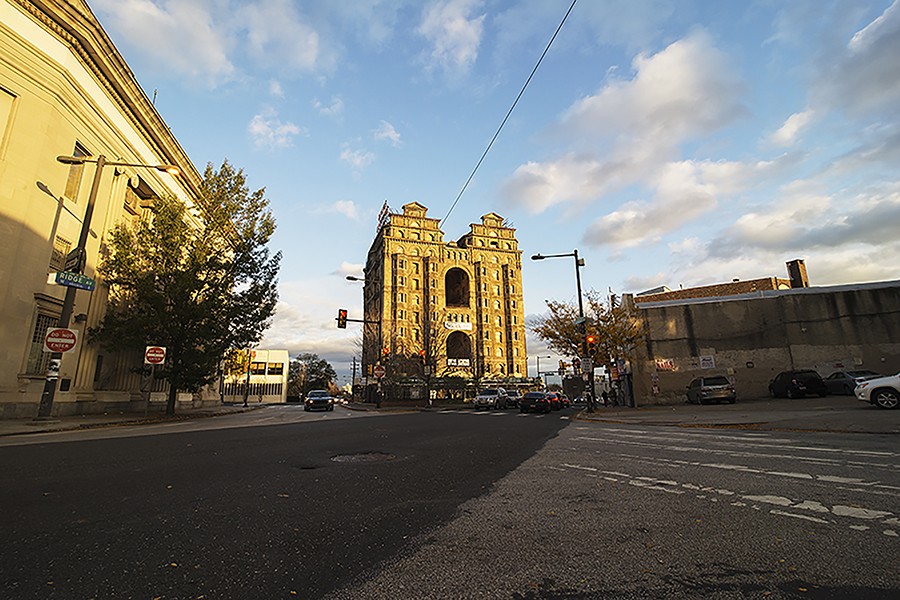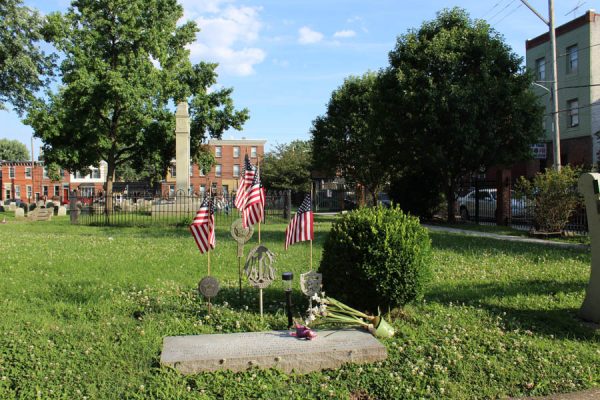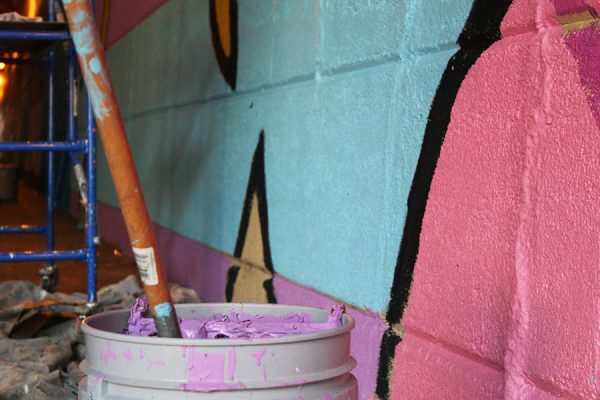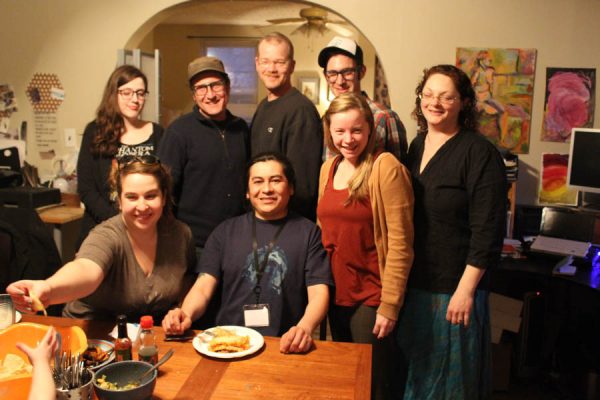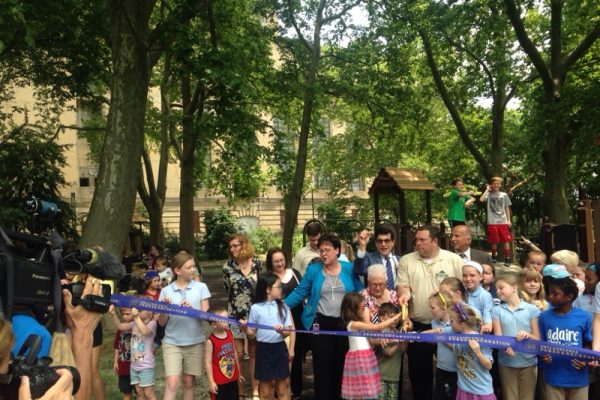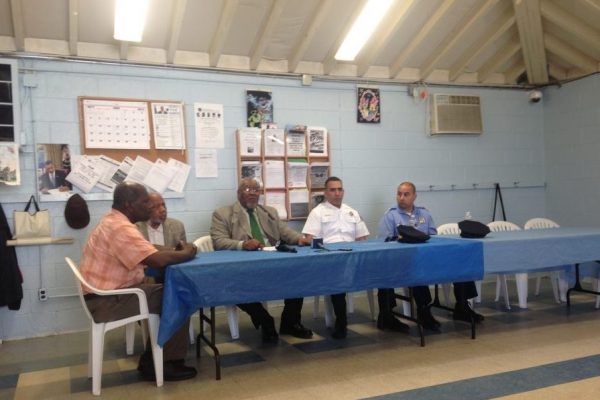The One That Got Away: Reconstruction of the Divine Lorraine
The Divine Lorraine (699 N. Broad St.) means a lot of different things to Philadelphians. To some, it is Philadelphia’s most distinctive eyesore, a condemned high rise pocked with graffiti on North Broad Street. To others, it is an integral part of Philadelphia’s history, a testament to late Victorian architecture, a kind of structure that may never be recreated. To Eric Blumenfeld, a Philadelphia developer and the current owner of the Divine Lorraine, the building was always something more.
“It was the one that got away,” Blumenfeld said.
Before the Divine Lorraine eluded Blumenfeld, he never expected to be in the development business. When he was attending Tulane University, the students were sent to the gym where each department had a table where students could register for classes and pick a major. Blumenfeld’s father, Jack, already involved in Philadelphia development projects such as the 44-story apartment building at 1500 Locust Street, advised his son to major in accounting.
“Accounting had a line around the corner and I just wanted to get out of there. So I signed up at the first empty desk which was English, the next empty desk was Philosophy; so I studied English Lit and Philosophy. I thought I’d become a CIA agent or a journalist,” Blumenfeld laughed.
Once Blumenfeld graduated, his father convinced him to move home and help him in the development business, to which Blumenfeld begrudgingly agreed. To his surprise, he actually liked it. “I was comfortable in it. I had been doing this since I was eight. On the weekends my dad put me to work,” Blumenfeld said, “mostly cleaning toilets and sweeping fire stairs.”
Blumenfeld explains that when he began looking into developing the area of North Broad around the Divine Lorraine, he had his sights set on rehabbing both the Divine Lorraine and the building at 640 North Broad. His lenders had one piece of advice for him: pick one. Blumenfeld eventually chose to focus on 640 North Broad because, “it’s four times the size and in much, much better condition,” he said. In 2005, he sold the Divine Lorraine at a profit and focused on developing 640 North Broad, which would eventually be home to several stories of lofts and Marc Vetri’s restaurant Osteria.
“My God is not money,” Blumenfeld said. “You’d think I would have profited, walked away and been happy, but I was miserable. Every day I’d go to work on [640] North Broad and see the Divine Lorraine continue to deteriorate.”
A few years later, the Divine Lorraine foreclosed again and Blumenfeld felt he had a second chance at his passion project, so he bought the property back. With redevelopment slated to cost around $70 million, Blumenfeld got essential financial backing in the form of millions of dollars from both the local and state government. The one that got away suddenly fell back into Blumenfeld’s lap, and his unfettered excitement for his new/old project often bubbles up unprovoked.
“When we had our groundbreaking [last September], we set up this pop-up [event] for the public, 7000 people showed up. I don’t think that’s ever happened before,” Blumenfeld said.
“I’ve never seen a building that carries this level of mystique. It’s the third most photographed monument in Philadelphia behind Rocky and City Hall. It’s been my honor to have the reins on this.”
Since the groundbreaking, Blumenfeld says there are 50 to 60 people working on the building daily to get it to its goal: 100 luxury apartments and 20,000 square feet of retail and restaurant space on the first floor, “What we will do there is very, very dramatic and important,” Blumenfeld said. “Half the building is framed, a quarter of it has the plumbing in place, the electric is just behind that— we’re moving along pretty fast.”
While the Divine Lorraine seems like an ambitious project, Blumenfeld sees it as one piece of a much larger, neighborhood-wide undertaking.
“I never saw North Broad as a single project, I see it as a community that ties other communities together,” Blumenfeld said.
“There will be a time, this year, next year, where Temple reaches to our side of North Broad and we reach out to them and it becomes one corridor.”
Blumenfeld has also begun work on the Thaddeus Stevens School of Observance (1301 Spring Garden St.), a large, Gothic-revival historic building located at Broad and Spring Garden.
Another redevelopment project in the pipeline is the Franklin and Studebaker building (667 North Broad St.), a building that’s already home to Chef Steven Starr’s commissary kitchen. Blumenfeld plans to remove the multicolored façade of the Franklin and Studebaker building (which, as Blumenfeld puts it, makes it “the ugliest building in Philadelphia”) to reveal the original brick front. The building will still house the Steven Starr kitchen and will add 20 apartments, a New Orleans-style concept restaurant by Chef John Mims and a separate café inspired by Café Du Monde.
Blumenfeld also spoke of reviving the Metropolitan Opera House (858 N. Broad St.) at Poplar and Broad Streets, a building he explains, gives him a similar feeling as the Divine Lorraine. “When you walk in, it’s astounding,” Blumenfeld said. “You feel like you’re in a Roman reserve, it’s a really special venue.”
To those who have been following the story of the Divine Lorraine since its closure in 1999, there has been no shortage of plans, concepts and rumors, but Blumenfeld assures this time is different. The Divine Lorraine we know, the abandoned centerpiece of North Broad, is gone forever, in the best possible way.
“We’ll start giving tours October, November,” Blumenfeld said. “We’ll have occupancy by the end of the year.”
